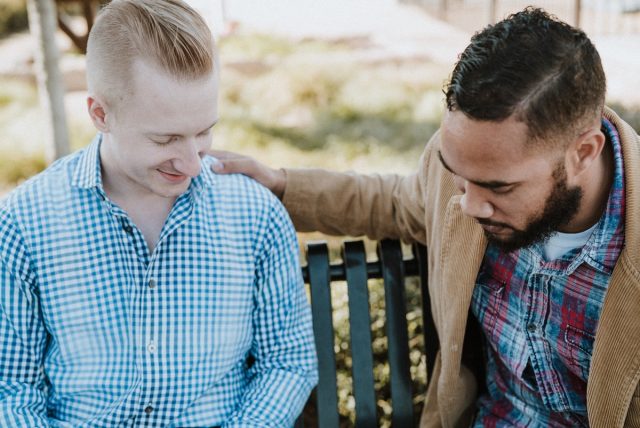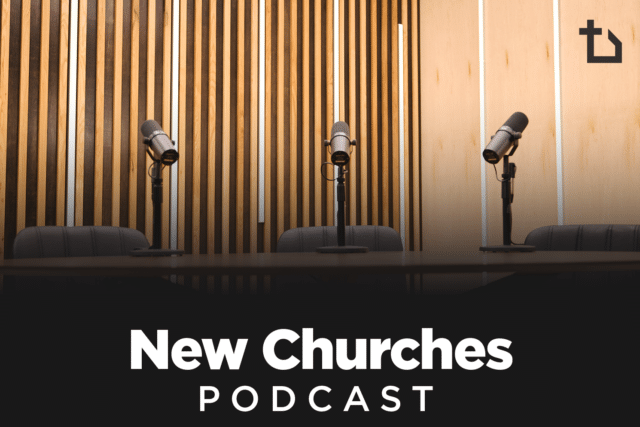Article
The Bitter Aftertaste of Broken Friendships
When something that was meaningful and precious vanishes in an instant, or even fades away over time, it leaves us feeling lost and less like the person we once were.

I spent some of my formative years living in a rural area of southern California. It was a little-known valley that contained all kinds of mountainy paths, gurgling creeks, and grassy meadows to explore to your heart’s content. In the summer months, my little brother and our friends would spend hours upon hours probing the scenic landscape like kids in a classic tale of youthful innocence. I remember one afternoon after we had been exploring for a while, one of our friends offered us some celery to munch on while we took a break. He handed me a couple of stalks, and without thinking, I took a bite before immediately spitting it out in disgust! It was the most sour, bitter, and wretched thing I had ever tasted. Of course, our friend was rolling on the ground laughing hysterically because he had given us the root of some bitter plant that had been growing wild on the hillside. To this day, I remember that it wreaked havoc on my taste buds and how long it took to get the pungent taste out of my mouth.
I say all of this to illustrate what it feels like to experience the bitter aftertaste of broken friendships.
The Bible is Honest
Scripture refuses to let us feel alone in the dark of our distress. Paul describes the heartache of broken friendships in 2 Timothy 4: “Demas has deserted me, since he loved this present world” (v. 10), “Alexander the coppersmith did great harm to me” (v. 14), and then again “no one stood by me, but everyone deserted me” (v. 16).
The cause of broken friendships can be many. Sometimes they are the result of our own doing–we did or said something unintentionally that we were unable to mend. It could be that we sinned so grievously against a friend that restoration seems impossible. It could be that a misunderstanding or disagreement arose, like it did for Paul and Barnabas, and it seemed best to part ways so that each could follow their conscience.
“They had such a sharp disagreement that they parted company, and Barnabas took Mark with him and sailed off to Cyprus. But Paul chose Silas and departed, after being commended by the brothers and sisters to the grace of the Lord” (Acts 15:39-40).
Even though there is not a pastor or ministry leader on earth who hasn’t experienced some of what is described in Paul’s ministry, it doesn’t lighten the bitter impact that it has on our souls.
Even as I type this column, I am recalling friendships where I have experienced every kind of brokenness imaginable. Some were due to my immaturity, lack of wisdom, and incredible short-sightedness. Others were due to misunderstandings that grew into unbearable and ultimately unresolved disagreements. Other situations were due to the actions of others toward me that I still feel unclear about many years later. Even mentioning them right now in the most discreet way possible brings back an ache in my heart that I’m not sure will ever go away this side of eternity.
So, what do we do with these shards of broken relationship glass? As we seek to grow in emotional intelligence and spiritual maturity, what should we be learning as we continue to endure these things that none of us have seen the last of?
Here are a few observations that come to mind that I hope might be helpful.
Hindsight Can Become Foresight
There are few circumstances more painful than a broken friendship. When something that was meaningful and precious vanishes in an instant, or even fades away over time, it leaves us feeling lost and less like the person we once were. This is where some godly counsel can go a long way in helping us gain some initial clarity in a situation and respond to both the friend and to the Lord with a humble and willing heart. If it appears that the friendship has been damaged beyond repair (at least for a season), some slowed-down times of prayer and reflection are of great benefit.
In my experience, hindsight can be transformed into foresight if we are willing to be open and honest with ourselves. Getting a sense of some of the cracks that emerged in a soured friendship will help you see them more clearly materialize in the next (or current) one. Granted, it is not always that clear, but more often than not, we can learn so much from broken friendships if we’re willing to become broken enough to see what went wrong and where our actions fit into the narrative, both good and bad.
Time is Like an Unbroken Friendship
When we find ourselves in a place of disorientation and despair due to the brokenness, we can remember that time is our friend. Someday, the pain will be less potent. Someday, there may be a little more clarity. Someday, we will look back and see how the Lord was moving in the mess. Someday, we will be able to help others navigate their own loss. Because there is a “someday,” we can trust that time, and the Lord who is over time, will develop patience in us, so that in the meantime we might “comfort the discouraged, help the weak, and be patient with everyone” (1 Thess. 5:14). Time helps us remember that someday we will know what we don’t know, because God will be good to reveal to us the good we need when we’re ready to receive it.
“Therefore, let all of us who are mature think this way. And if you think differently about anything, God will reveal this also to you” (Phil 3:15).
If we let time be our friend, it will reward us with the maturity that comes with waiting, praying, and enduring.
Do Some Relational Wellness Checks
It can be as simple as sitting down with a friend over coffee and asking questions like these:
- Are we doing OK?
- Is there any tension between us that we’ve been ignoring?
- Is there something you’ve been wanting to say to me but have been afraid to bring up?
- Is there anything I can ask forgiveness for?
- How can I be a better friend to you?
Even as I type this, I’m imagining the dread that might surface in some of you as you read this. Take time to pray before you plan a conversation like this. Let the Lord prepare your heart, and bring clarity to your mind. It will be a courageous conversation for you and your friend. But imagine the fruit that might come from it! Imagine what you might learn.
Imagine the light that may come about.
The joy.




